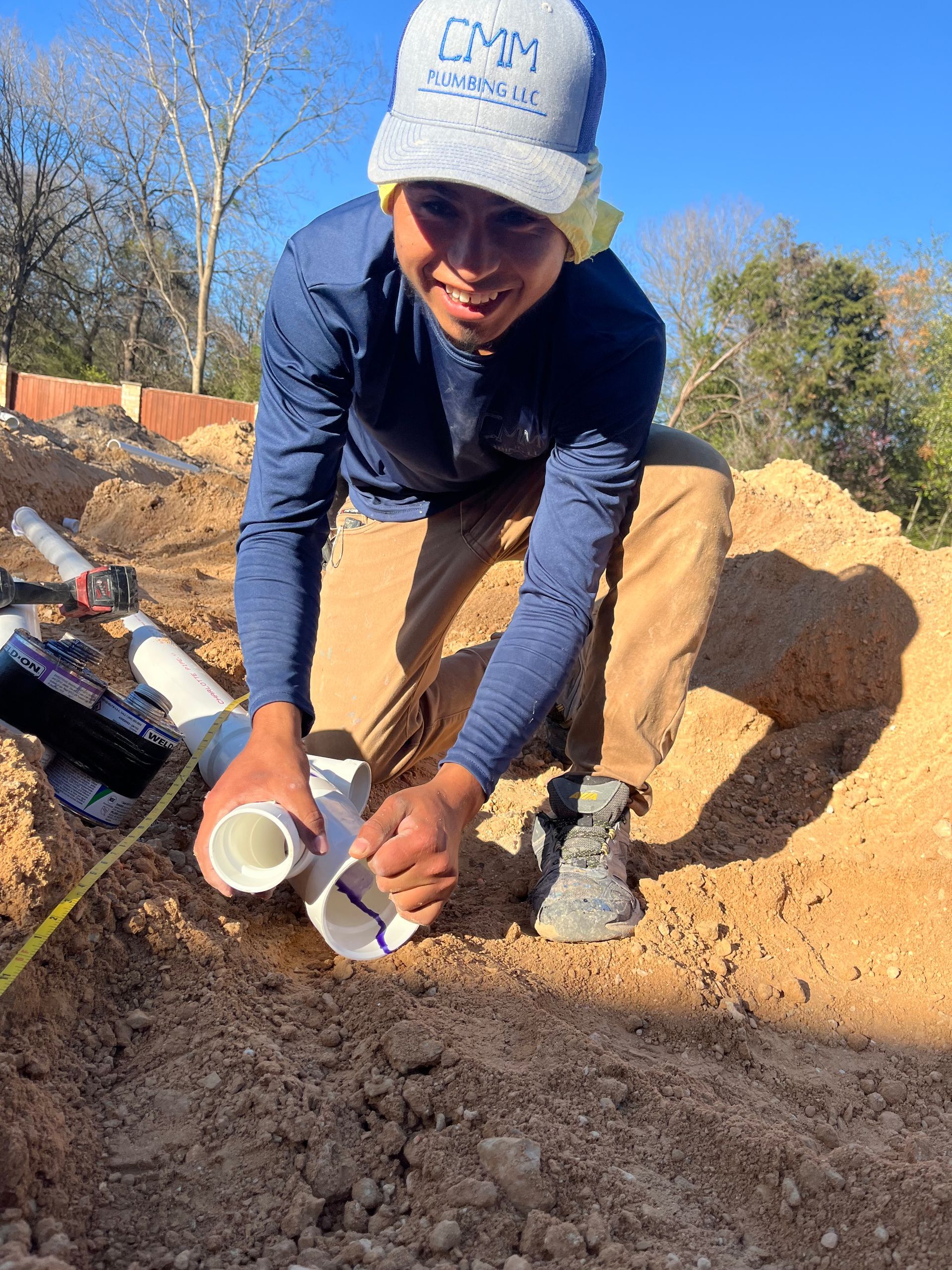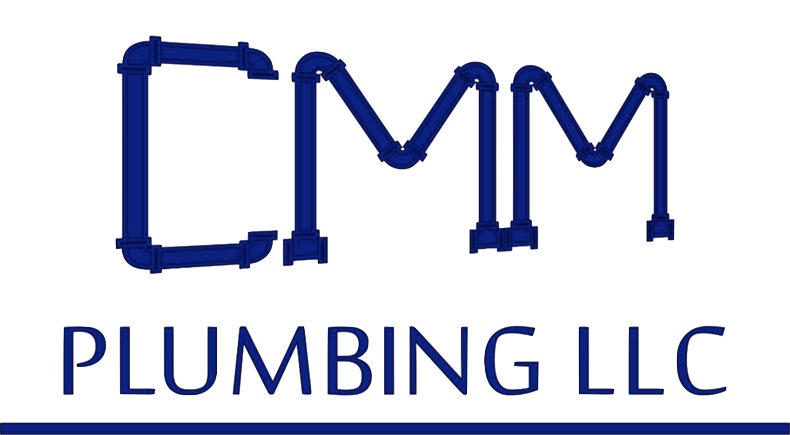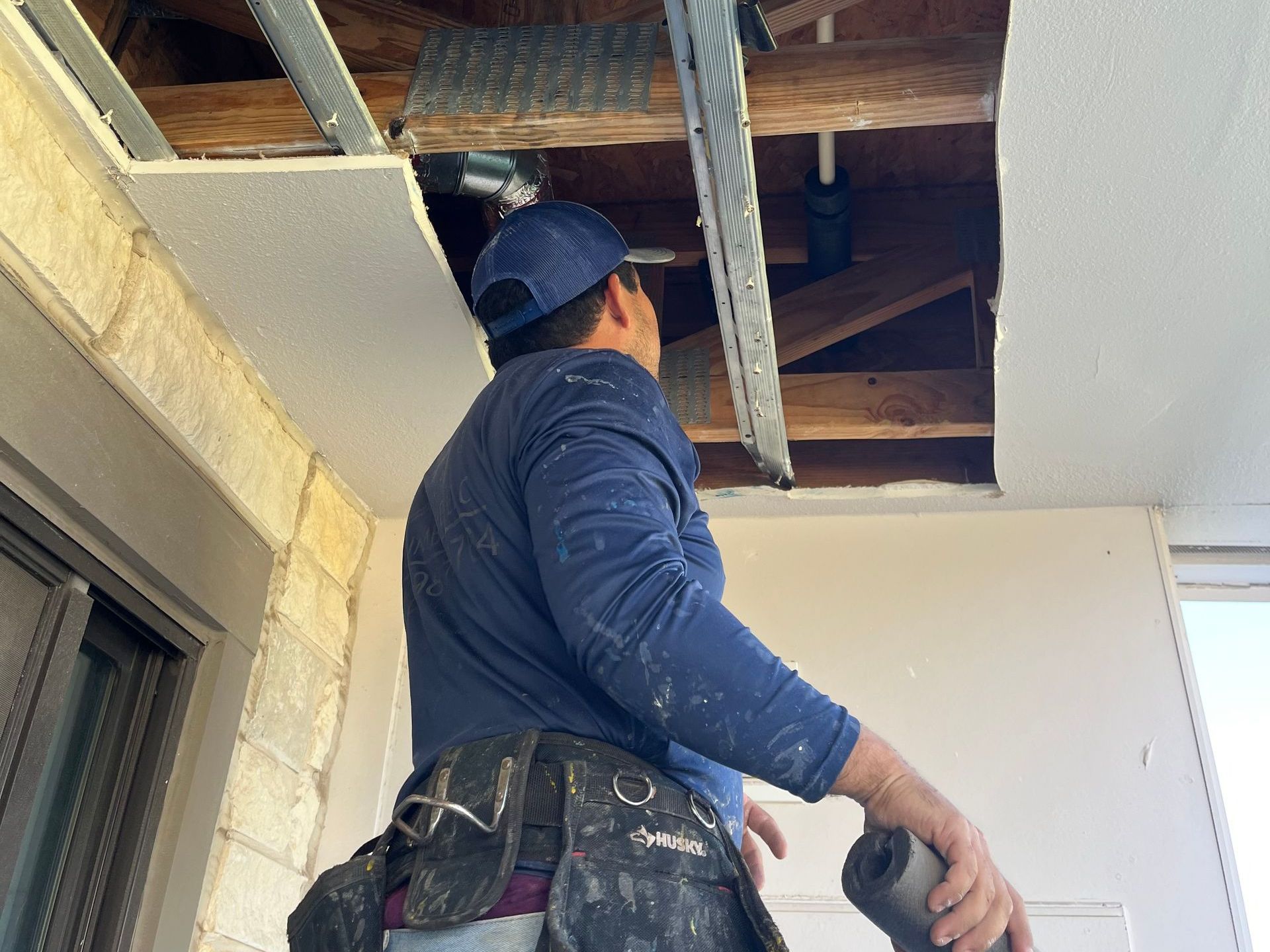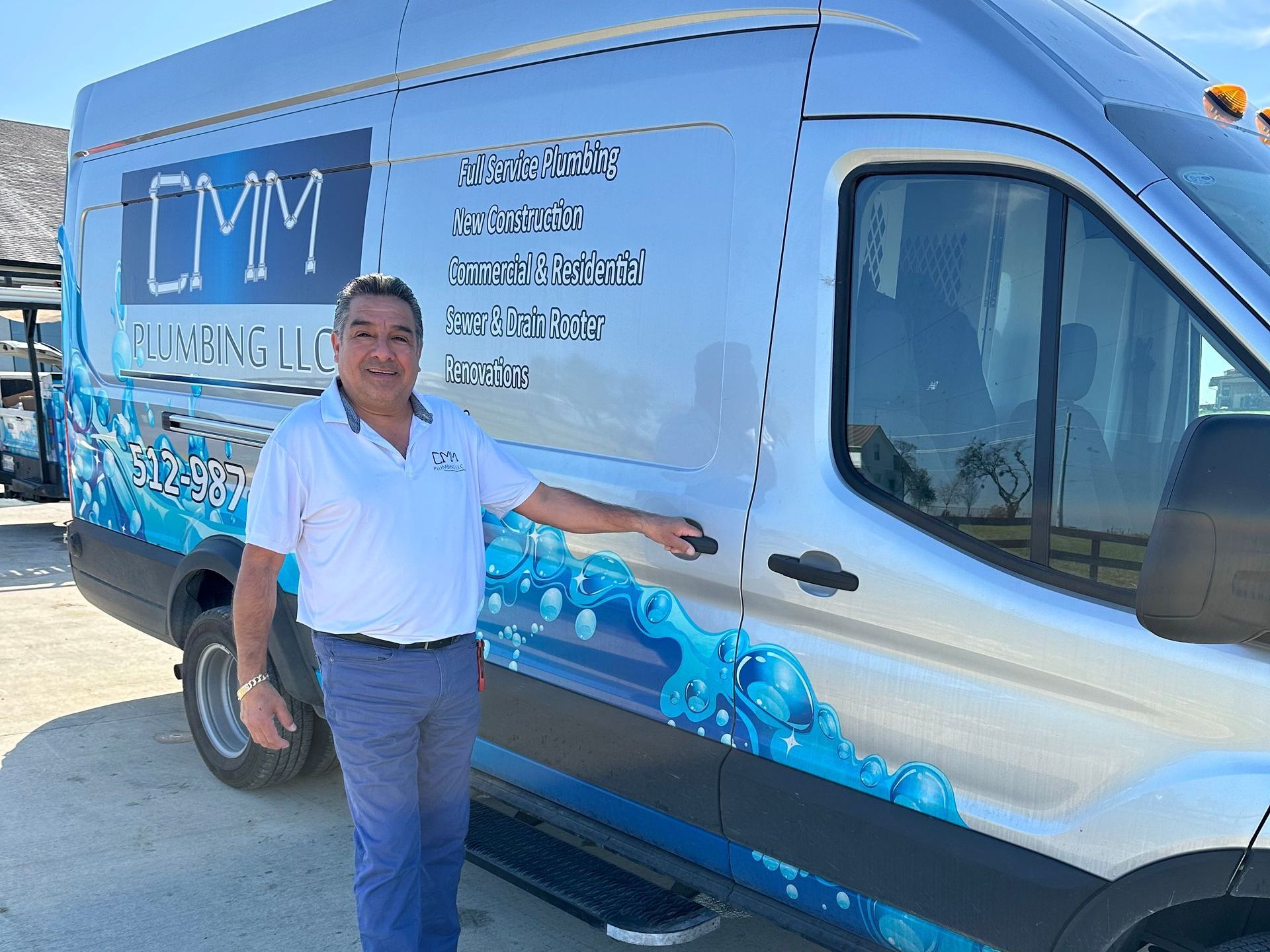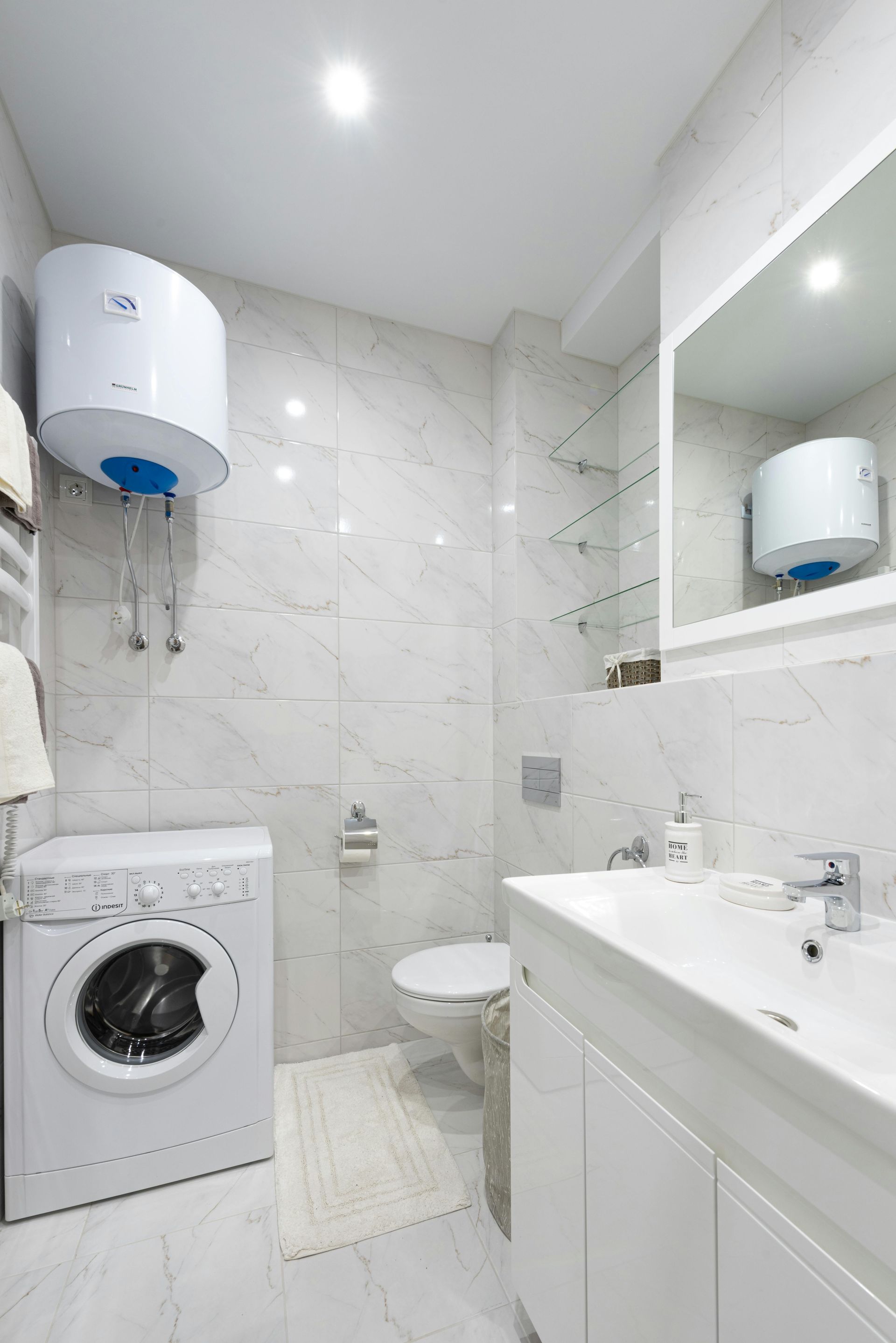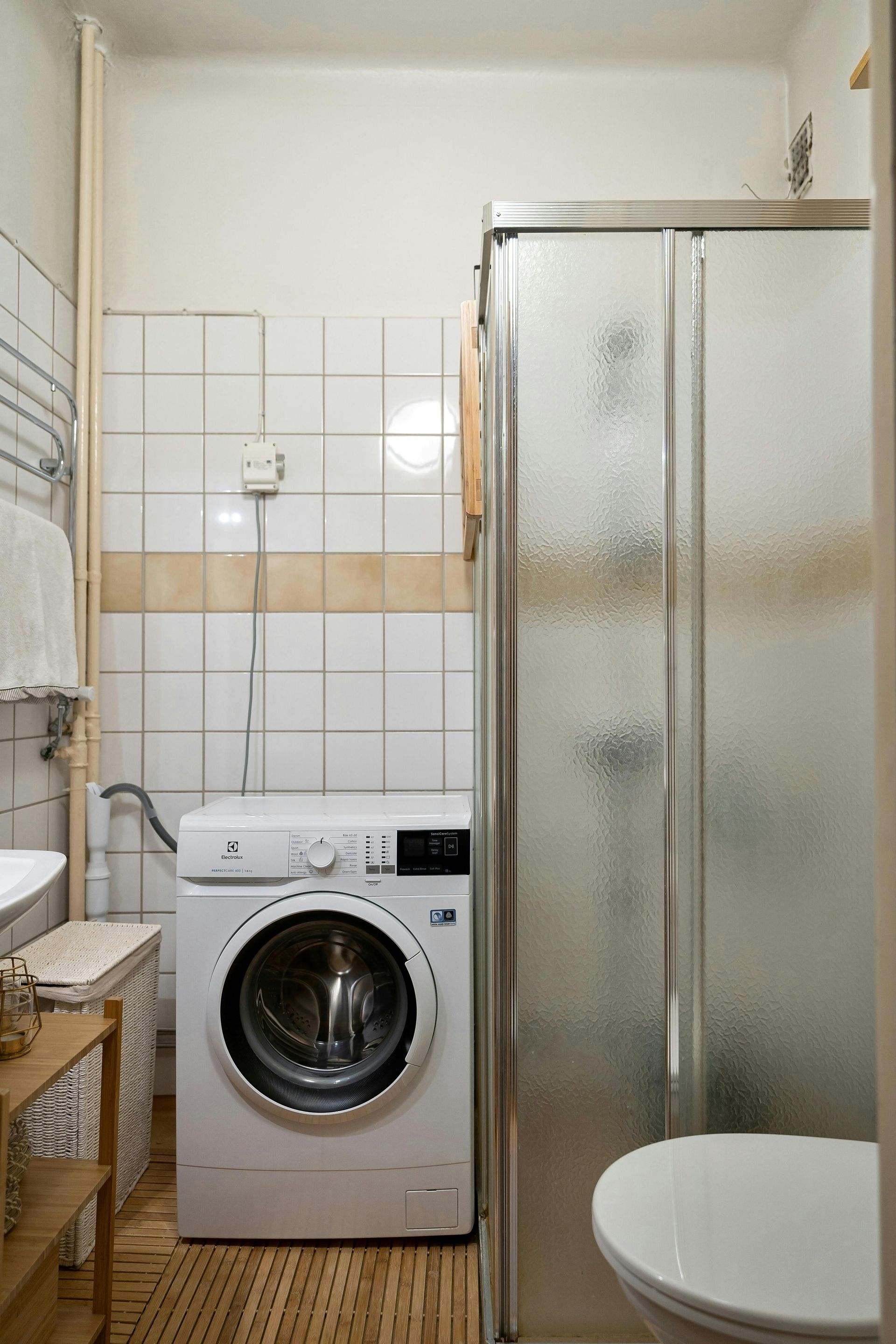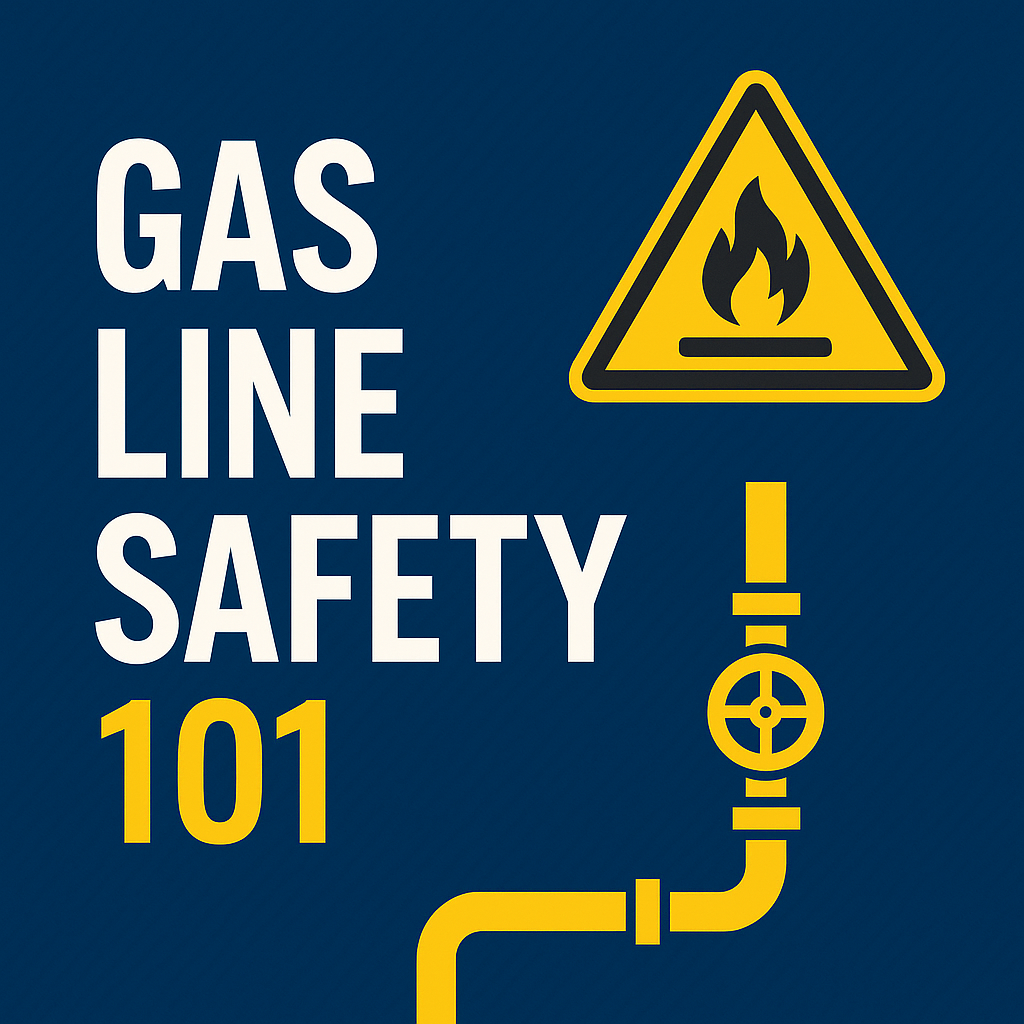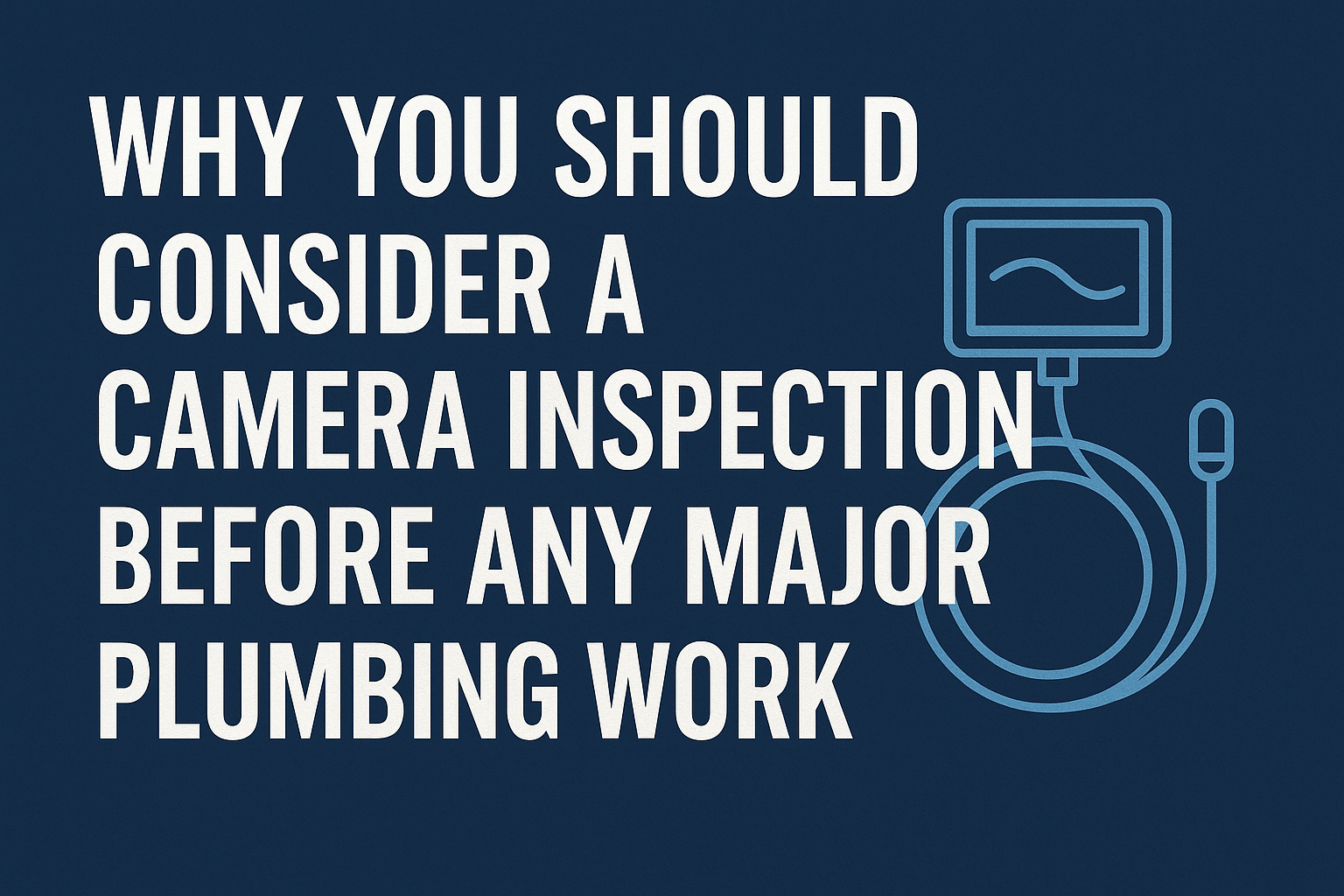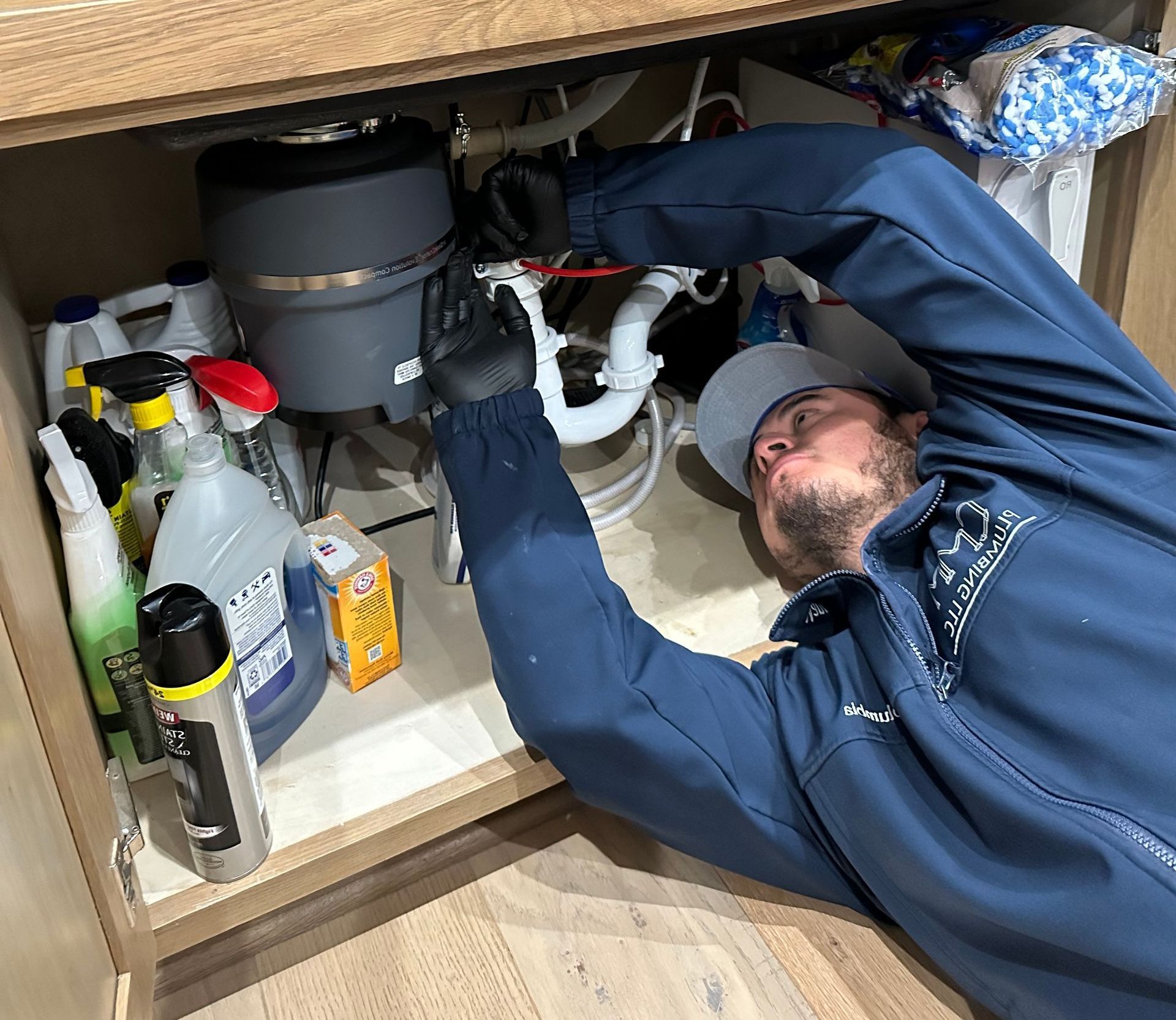Tankless vs Traditional Water Heaters: Which Is Right for Your Texas Home?
Homeowners in Coupland, Austin, or any of the Texas Hill Country areas are increasingly interested in energy efficiency and appliance longevity—especially when it comes to water heaters. Choosing between tankless and traditional (tank-style) water heaters can be a challenging decision. Each option has unique benefits and considerations. At CMM Plumbing, our certified team (Navien & Rinnai experts) helps guide you to the best solution based on your needs, home configuration, and water quality.
1. How Tankless Water Heaters Work
Tankless units, also known as on-demand systems, heat water only when a faucet or appliance is in use. Water flows through a heat exchanger powered by gas or electricity, warming instantly—no waiting for a storage tank to fill up.
Benefits:
- Energy Savings: Only heated water is used.
- Space Efficiency: Wall-mounted and compact—ideal for tight utility spaces.
- Endless Hot Water: Perfect for busy households.
- Longevity: Typically lasts 15–20 years with proper care.
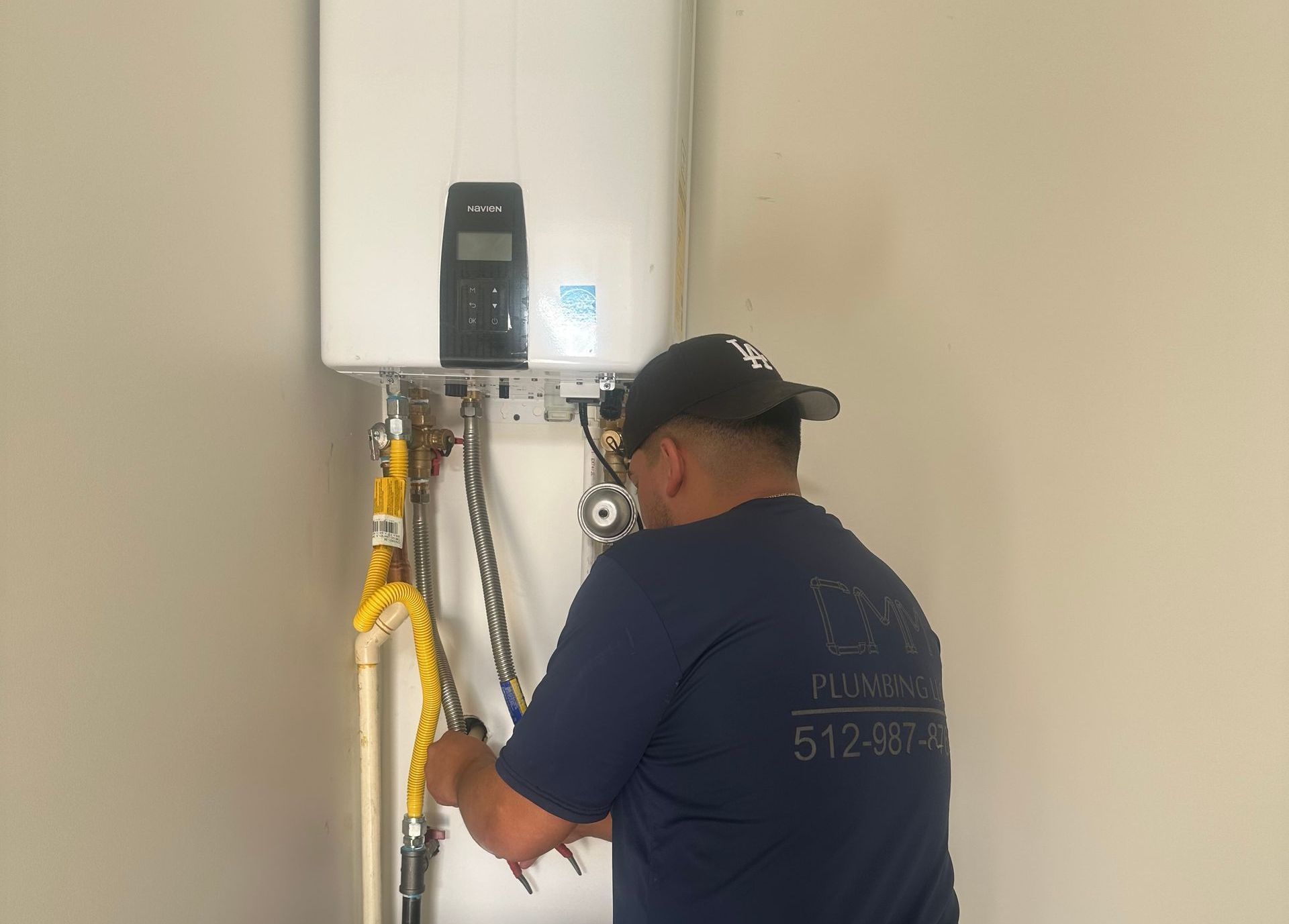
2. What Makes Traditional Water Heaters Still Viable
Traditional tank-style water heaters hold 30 to 80 gallons of hot water in an insulated tank, keeping it ready for everyday use.
Benefits:
- More Affordable Upfront: Installation usually costs between $1,200 and $2,000.
- Simple Setup: Easy to replace with few changes needed.
- Easier to Maintain: The straightforward design makes routine care simpler.
3. Comparing Performance & Savings
Tankless water heaters come with a higher installation cost ($2,500–$4,000) compared to traditional tank systems ($1,200–$2,000). However, they’re more energy-efficient—using 20–30% less energy annually—and have a longer lifespan of 15 to 20 years, compared to 8 to 12 years for traditional tanks. With fewer replacements needed and annual energy savings of $100–$300, many Texas homeowners find that a tankless system pays for itself within 5 to 7 years, depending on usage.
4. Hard Water in Central Texas: A Key Factor
Hard water (high in calcium/magnesium) is common in Coupland and surrounding areas, and it affects both types of heaters:
- Tankless Units: Susceptible to scale buildup in heat exchangers, which can lead to decreased efficiency or damage.
- Traditional Tanks: Water settles at the bottom, allowing sediment to accumulate—leading to tank corrosion or heating inefficiency.
- Solution: Install flush maintenance annually (tankless) or drain and scrub (tank-type). A water softener can help both systems last longer.
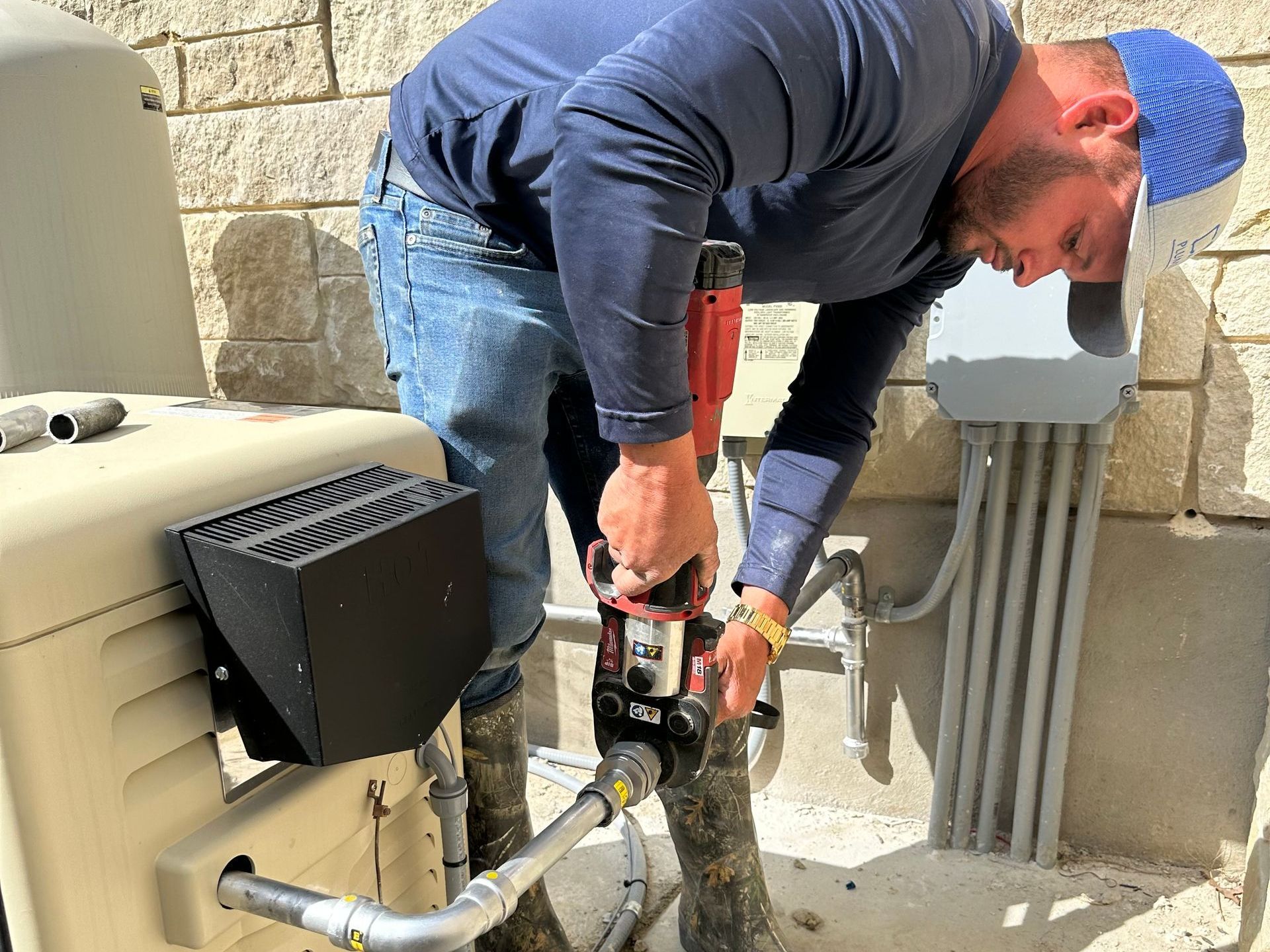
5. Space & Installation Considerations
Tankless Systems:
- Require larger gas lines or dedicated electric circuits.
- It is ideal for homeowners with limited space or those who want wall-mounted flexibility.
Traditional Tanks:
- Require floor space and appropriate plumbing.
- Easier replacement without major home modifications.
6. Environmental Impact
Tankless heaters reduce energy consumption by heating on demand and avoiding standby losses. Their longer lifespan also contributes to fewer replacements and less waste over time.
7. Real-Life Scenarios: What Works Best
- Large Household with High Demand: Tankless wins—unlimited hot water and space efficiency.
- Budget-Conscious or Simple Swap Needed: Traditional is quick, affordable, and reliable.
- Limited Space for a Heater: Tankless systems open more options for creative placement.
- Planning to Stay Long-Term: Tankless systems pay off with energy savings and a longer lifespan.
8. Why CMM Plumbing Is Your Best Choice
- Navien & Rinnai Certified: Expertise in premium tankless systems.
- Full-Service Range: From installation to annual maintenance across Central Texas.
- Maintenance Plans Available: Keep your system running strong and energy-efficient.
- Transparent Pricing: No surprise costs, just reliable estimates.
9. Maintenance Comparison: What You’ll Need
Both tankless systems and traditional water heaters require annual maintenance, such as flushing or descaling, to prevent buildup. Tankless units also require routine filter cleaning, while traditional tanks typically need less filter attention. It's essential to inspect fittings and pipes for both types, with tankless systems sometimes needing extra checks on valves. Traditional tanks also need regular anode rod inspections to guard against corrosion. Staying on top of maintenance can help prevent unexpected repairs and extend the life and warranty of your water heater.
10. Final Takeaways
Choose a Tankless System if you value energy efficiency, a compact design, and endless hot water—even if it means a higher upfront investment.
Stick with a Traditional Tank if keeping costs low is your primary concern and you prefer a simpler system that’s easier to replace.
Whichever option you choose, regular maintenance and a water softener are key in Central Texas to protect against hard water damage.
Final Thoughts & Call to Action
Choosing the right water heater depends on your home's unique needs, available space, usage habits, and long-term priorities. Ready to find the best fit for your household?
👉 Contact CMM Plumbing today for a customized recommendation and quote in Coupland, Austin, Round Rock, and nearby cities:
Call us at
(737) 233‑1822 or visit
cmmplumbing.com/contact
